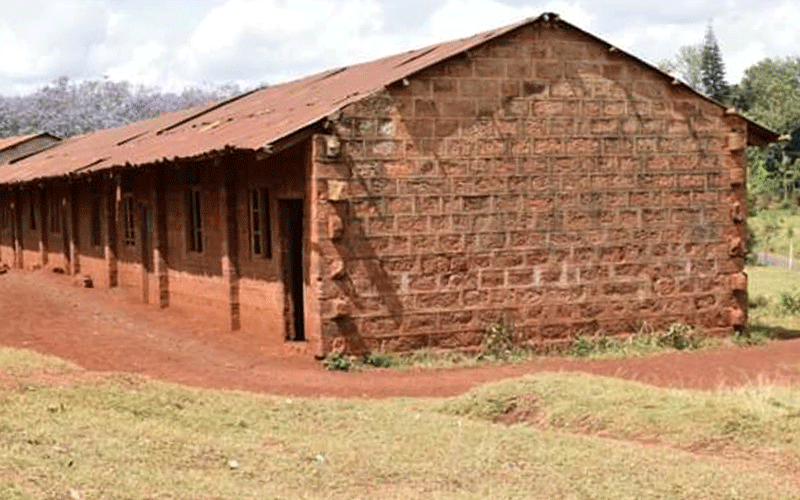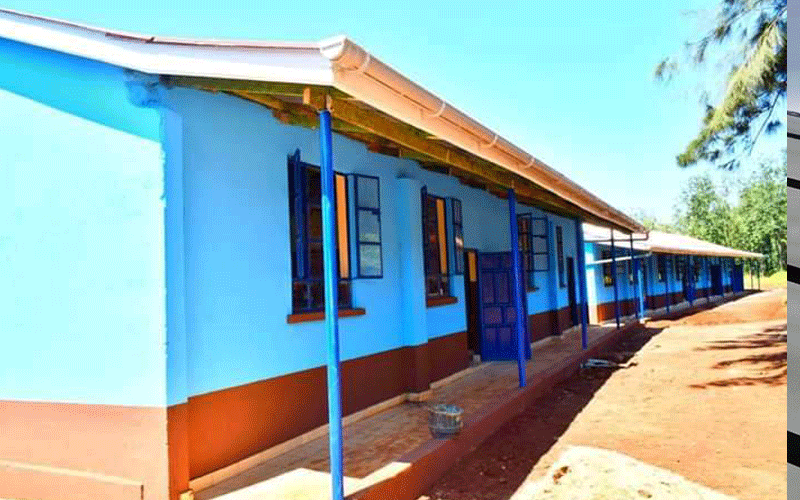Kiambu leaders move to stem schools crisis

Treasury has allocated only Sh200 million for infrastructure improvement in all primary schools countrywide, prompting area MPs to seek options
The education sector continues to grapple with poor infrastructure and overcrowding in public primary and secondary schools amid a worsening budgetary crisis.
Appearing before the National Assembly Education Committee, Education Cabinet Secretary George Magoha and the Teachers Service Commission CEO Nancy Macharia said the 100 per cent transition policy has led to overworked teachers, congestion and a funding crisis.
“We need Sh3 billion to expand facilities in secondary schools to accommodate more students, but we have only been allocated Sh1.5 billion in the budget policy statement.
Only Sh200 million has been allocated for infrastructure improvement in primary schools,” said Magoha.
The dilapidated, crowded and weak public school infrastructure leads to low morale among the learners, teachers and parents.
Most public schools have overtime been outshined by private institutions in academics and co-curriculum activities, courtesy of a good learning and playing environment.
In Kiambu county where education standards have been on a decline, local MPs have taken matters in their own hands by fast-tracking construction of new schools, renovating and expanding existing ones using National Government- Constituency Developments Funds (NG-CDF). 
Gatundu North MP Wanjiku Kibe says more than 90 per cent of primary and secondary schools in the area have been in a deplorable state.
Last year, the constituency had than 1,800 Kenya Certificate of Secondary Education (KCSE) candidates who scored grade D. “Poor infrastructure causes poor academic performances,” she says.
For instance, St Francis Primary School, which neighbours well-performing St Francis Girls —an extra county school — was labelled a museum of poor infrastructure due to its pitiable state.
To stem the crisis, the MP, through NG-CDF kitty is spearheading an effort to give derelict schools a facelift to boost learners’ performance.
Today, St Francis is no longer an eyesore. “This is a shot in the arm and will go a long way in helping the pupils concentrate in class,” says Martin Kariuki, a parent.
Last year, Scholar featured the poor state of Mungai, Gatei, Buchana, Kieni, Nyamathumbi, St Francis, Miugu and Kiangunu primary schools in Gatundu, most of which have since been renovated.
Kibe is optimistic that with collaboration among stakeholders, academic performance in the constituency will improve.
Deputy President William Ruto in January initiated construction of dormitory facilities at Chania Girls School in Thika— to accommodate 200 students— which area MP Patrick Wainaina said was constructed through NG-CDF funds.
In Ruiru Constituency, MP Simon King’ara hopes to construct more than 18 classrooms by December through NG-CDF.
The move is meant to provide a good learning environment for the learners, ease the burden of paying construction levies by parents and to reduce congestion.
Speaking while launching two new classrooms at Kimbo Primary School, Kinga’ra said most institutions in Ruiru sub-county are overcrowded, in dilapidated condition and with limited facilities, which negatively impacts on performance. 
So far, the MP has overseen construction of more than 30 classrooms in various schools while others have been renovated.
To reduce congestion at Mwiki Primary School in Githurai, which has more than 4,000 pupils, NG-CDF will construct two new primary schools—Manguo in Kiu Ward and Mutuya in Mwihoko ward.
To be completed by June on a five-acre land at a cost of Sh70 million, Mutuya is also expected to help decongest Mwihoko Primary which has more than 1,700 pupils despite inadequate facilities.
All unregistered schools and those with dilapidated structures were closed down in January.
“We had over 1,500 children from the banned private academies, but only 55 pupils secured vacancies at Mwihoko Primary.
About 1,400 others roam within the community with no school to go to. A new school is a great relief for our children,” said Ann Mwangi, a parent.






